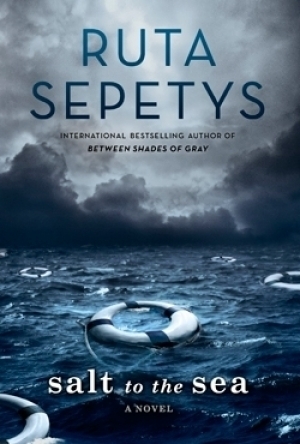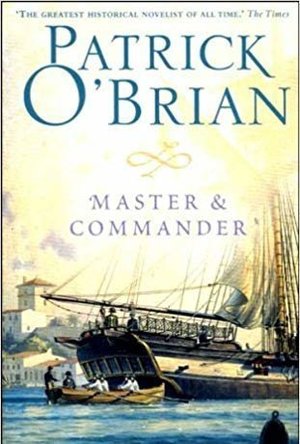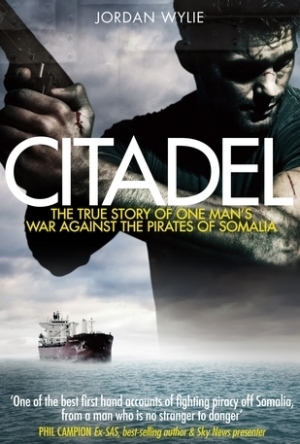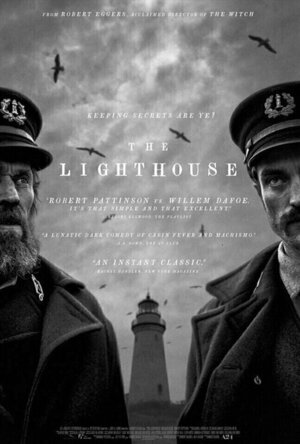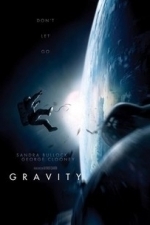Search
Search results
Hallettatme (9 KP) rated Salt to the Sea in Books
Mar 16, 2018
Chris Hooker (419 KP) rated The Deadly Shipwrecks of the Powhattan and New Era On The Jersey Shore in Books
Jan 12, 2018
I was given this book by a high school friend who is related to the author. I love history and disasters so this book was right up my alley. It was well researched and written, as well as filled with information. As a non mariner some of the language was a bit over my head but I could follow it in context. I could almost put myself on the storm swept beaches with the rescuers, perhaps growing up on the Jersey Shore had something to do with that. Anyone who likes maritime history or history of the Jersey Shore should put this one on their list.
Kaz (232 KP) rated 'Master and Commander' in Books
May 15, 2019
An Interesting Maritime Adventure
This book was recommended to me by a friend who has read all of the books in the series and this, is the first. I thought because I had watched the film version of this novel, that I knew what the story was going to be about, but the book is very different from the adaptation.
At first, I found this extremely difficult to get into. After about 100 pages I actually put this book down, because I found the maritime vocabulary, impossible to follow. However, I decided to pick it back up again and actually, when the character Stephen Maturin, the ship's doctor, comes into the story, I found that, because he was a novice with ships, he was asking questions about the different mechanisms etc of the ship and that helped me to feel that I had some idea of what it was all about.
I also found some of the battle scene a little bit static and difficult to visualize.
Even though this was a challenging book, I really like the relationship between Stephen and Jack Aubrey, the ship's captain. The writing was very humorous at times and I also liked how some of this book featured places in the Mediterranean that I'm really familiar with.
Being the first in the series, I'm sure as the novels progress, I might find this easier to get into. I won't be rushing out to read any more at the moment, I think you need to be in the right mood to read them. However, I may read more of this series in the future.
My Rating ***
At first, I found this extremely difficult to get into. After about 100 pages I actually put this book down, because I found the maritime vocabulary, impossible to follow. However, I decided to pick it back up again and actually, when the character Stephen Maturin, the ship's doctor, comes into the story, I found that, because he was a novice with ships, he was asking questions about the different mechanisms etc of the ship and that helped me to feel that I had some idea of what it was all about.
I also found some of the battle scene a little bit static and difficult to visualize.
Even though this was a challenging book, I really like the relationship between Stephen and Jack Aubrey, the ship's captain. The writing was very humorous at times and I also liked how some of this book featured places in the Mediterranean that I'm really familiar with.
Being the first in the series, I'm sure as the novels progress, I might find this easier to get into. I won't be rushing out to read any more at the moment, I think you need to be in the right mood to read them. However, I may read more of this series in the future.
My Rating ***
Alice (117 KP) rated Salt to the Sea in Books
Mar 3, 2021
Where do I begin! I love a character-driven book and this was character-driven fiction at it's finest! It's so rare to find a multiperspective novel where I actually care about all of the perspectives being told and truly care about all the characters which is made all the more heartbreaking when you obviously know from the start what's awaiting them all by the end. This is by no means a novel about the Willhelm Gustloff but a story of love, loss, and finding your inner strength set against the backdrop of the worst maritime tragedy in history (but one that not many people even know about due to it happening to the other side). This is one of those books that I just know I'll keep thinking about long after I've read the last page (I stayed up til 1am to finish it) and I honestly couldn't recommend this more.
Pirates and Swearing
I received this book for free through Goodreads First Reads.
Citadel is a personal account of one man’s war against the pirates of Somalia. Jordan Wylie grew up in Blackpool and joined the King’s Royal Hussars as soon as he left school. Unfortunately, a back injury restricted the tasks he was able to perform meaning he had to leave the army behind him. However, his skills as a non-commissioned officer came in handy in his new position in maritime security. Jordan became a security guard for merchant ships that had to make the dangerous journey through Pirate Alley, i.e. Somalia. In this book, Jordan tries to encapsulate his experience aboard these ships and his encounter with the licentious pirates.
Somali pirates are not the typical figures from pantomimes, dressed in tricorn hats and frock coats, complete with pet parrot on the shoulder yelling “Avast me hearties!” Instead, they are young African men of a bellicose nature, some barely out of their teens, wielding guns with the intention of taking over ships and demanding extortionate ransoms.
Jordan was rather fortunate with his brush with pirates and never experienced being captured or attacked. Nevertheless, the occasions when Somalis attempted to take over were extremely nerve-racking, especially because Jordan and the crew had horror stories of other ships’ fates fresh in their minds. In these instances, Jordan had to remain calm and professional, relying on his army background and personal bravery to keep everyone safe.
The title, Citadel, refers to the name of the safe room the crew were required to lock themselves in should pirate attack become imminent. In some instances, entire ship crews would be locked in these rooms for days or longer, desperately awaiting rescue. Jordan’s brief exposure to the citadel was enough for him to realise how truly awful being locked below decks for a lengthy period of time would be.
Citadel lacks synchronicity and often jumps from Jordan’s own experiences to stories he has heard of other ships. He also talks about his family back home in England, including his wife and young daughter. Being away from home for months at a time is very difficult but the pay cheque of a maritime security guard is too appealing to turn down.
Unfortunately, Jordan’s narrative is ruined through his use of unnecessary expletives. Ironically, Jordan writes about telling off other security guards for swearing because it upsets the native sailors, yet, he does not think about the readers he may be irritating.
Overall, Jordan’s book Citadel brings to attention the dangers sailors face whilst shipping our everyday commodities. Most of us are unaware of the events occurring in the Middle East and the state of the lives of Somali families that force children to grow up to become pirates. Citadel is eye-opening in more ways than one and will interest readers with interest in the armed forces, security management and so forth.
Citadel is a personal account of one man’s war against the pirates of Somalia. Jordan Wylie grew up in Blackpool and joined the King’s Royal Hussars as soon as he left school. Unfortunately, a back injury restricted the tasks he was able to perform meaning he had to leave the army behind him. However, his skills as a non-commissioned officer came in handy in his new position in maritime security. Jordan became a security guard for merchant ships that had to make the dangerous journey through Pirate Alley, i.e. Somalia. In this book, Jordan tries to encapsulate his experience aboard these ships and his encounter with the licentious pirates.
Somali pirates are not the typical figures from pantomimes, dressed in tricorn hats and frock coats, complete with pet parrot on the shoulder yelling “Avast me hearties!” Instead, they are young African men of a bellicose nature, some barely out of their teens, wielding guns with the intention of taking over ships and demanding extortionate ransoms.
Jordan was rather fortunate with his brush with pirates and never experienced being captured or attacked. Nevertheless, the occasions when Somalis attempted to take over were extremely nerve-racking, especially because Jordan and the crew had horror stories of other ships’ fates fresh in their minds. In these instances, Jordan had to remain calm and professional, relying on his army background and personal bravery to keep everyone safe.
The title, Citadel, refers to the name of the safe room the crew were required to lock themselves in should pirate attack become imminent. In some instances, entire ship crews would be locked in these rooms for days or longer, desperately awaiting rescue. Jordan’s brief exposure to the citadel was enough for him to realise how truly awful being locked below decks for a lengthy period of time would be.
Citadel lacks synchronicity and often jumps from Jordan’s own experiences to stories he has heard of other ships. He also talks about his family back home in England, including his wife and young daughter. Being away from home for months at a time is very difficult but the pay cheque of a maritime security guard is too appealing to turn down.
Unfortunately, Jordan’s narrative is ruined through his use of unnecessary expletives. Ironically, Jordan writes about telling off other security guards for swearing because it upsets the native sailors, yet, he does not think about the readers he may be irritating.
Overall, Jordan’s book Citadel brings to attention the dangers sailors face whilst shipping our everyday commodities. Most of us are unaware of the events occurring in the Middle East and the state of the lives of Somali families that force children to grow up to become pirates. Citadel is eye-opening in more ways than one and will interest readers with interest in the armed forces, security management and so forth.
Peter Strickland recommended The Lighthouse (2019) in Movies (curated)
Hazel (1853 KP) rated Salt to the Sea in Books
Dec 17, 2018
<i>This ARC was provided by the publisher via NetGalley in exchange for an honest review
“We survivors are not the true witnesses. The true witnesses, those in possession of the unspeakable truth, are the drowned, the dead, the disappeared.” </i>– Primo Levi
World War Two has got to be the most well known and talked about period of history. Despite it not even being a century ago, it is already taught in schools around the globe. However a lot of events are omitted from our history books. A lot of people, including those alive at the time, have no idea of some of the situations Europeans found themselves in. Ruta Sepetys, despite having only previously written two novels, has become known for her stories about the lesser-known aspects of the Second World War. Her third book, <i>Salt to the Sea</i>, is no different.
In 1945 things were not looking great for the people living in Germany. Their greatest concern was the invading Russian army, resulting in thousands of Germans evacuating their hometowns. Four characters in their late teens/early twenties narrate <i>Salt to the Sea</i>: Joana, Florian, Emilia and Alfred. Their varied nationalities – Lithuanian, Prussian, Polish and German – help provide a range of opinions about the war, but regardless of who they believe to be the enemy, whether it be German or Russian or both, they are all figuratively in the same boat.
Joana, Emilia and Florian meet each other amongst a group of refugees trekking to freedom. A lot of trust is involved especially as no one is willing to reveal his or her true story. It is clear that each character is hiding something personal, something to do with the war, yet they all rely on and help each other to continue on their journey.
Naturally, being a war story there is masses of death and destruction. Set in January, the weather conditions are just as dangerous as the Russian soldiers. It is the end of the novel that contains the most shocking of events: a sinking of a ship that kills 9000 passengers. The most severe maritime disaster ever, yet it is doubtful that readers already know about it.
Despite being a work of fiction, Sepetys sticks to the facts in her heavily researched novel. She shocks the reader with the severity of the situation, and may even bring some to tears with the outcome. She has not sugar coated anything. Some storytellers save the innocents from harm, but this was not the case in <i>Salt to the Sea</i>. In war, no one can choose who lives and who dies. Millions of innocent people perish.
The short chapters keep the story flowing quickly. It is shocking, gripping and engaging. There is a brief notion of romance but this is not focused on and thus does not detract from the factual storyline. There was a hinted connection between characters in this novel and those in <i>Between Shades of Grey </i>– one of Sepetys’ earlier novels, however this is not a sequel or part of a series.
With the help of maps showing the difference between Europe now and Europe in 1945,<i> Salt to the Sea</i> is highly educational. Although aimed at young adults it is suitable for older generations as well. Whilst containing shocking content, you are certain to fall in love with Sepetys’ writing.
“We survivors are not the true witnesses. The true witnesses, those in possession of the unspeakable truth, are the drowned, the dead, the disappeared.” </i>– Primo Levi
World War Two has got to be the most well known and talked about period of history. Despite it not even being a century ago, it is already taught in schools around the globe. However a lot of events are omitted from our history books. A lot of people, including those alive at the time, have no idea of some of the situations Europeans found themselves in. Ruta Sepetys, despite having only previously written two novels, has become known for her stories about the lesser-known aspects of the Second World War. Her third book, <i>Salt to the Sea</i>, is no different.
In 1945 things were not looking great for the people living in Germany. Their greatest concern was the invading Russian army, resulting in thousands of Germans evacuating their hometowns. Four characters in their late teens/early twenties narrate <i>Salt to the Sea</i>: Joana, Florian, Emilia and Alfred. Their varied nationalities – Lithuanian, Prussian, Polish and German – help provide a range of opinions about the war, but regardless of who they believe to be the enemy, whether it be German or Russian or both, they are all figuratively in the same boat.
Joana, Emilia and Florian meet each other amongst a group of refugees trekking to freedom. A lot of trust is involved especially as no one is willing to reveal his or her true story. It is clear that each character is hiding something personal, something to do with the war, yet they all rely on and help each other to continue on their journey.
Naturally, being a war story there is masses of death and destruction. Set in January, the weather conditions are just as dangerous as the Russian soldiers. It is the end of the novel that contains the most shocking of events: a sinking of a ship that kills 9000 passengers. The most severe maritime disaster ever, yet it is doubtful that readers already know about it.
Despite being a work of fiction, Sepetys sticks to the facts in her heavily researched novel. She shocks the reader with the severity of the situation, and may even bring some to tears with the outcome. She has not sugar coated anything. Some storytellers save the innocents from harm, but this was not the case in <i>Salt to the Sea</i>. In war, no one can choose who lives and who dies. Millions of innocent people perish.
The short chapters keep the story flowing quickly. It is shocking, gripping and engaging. There is a brief notion of romance but this is not focused on and thus does not detract from the factual storyline. There was a hinted connection between characters in this novel and those in <i>Between Shades of Grey </i>– one of Sepetys’ earlier novels, however this is not a sequel or part of a series.
With the help of maps showing the difference between Europe now and Europe in 1945,<i> Salt to the Sea</i> is highly educational. Although aimed at young adults it is suitable for older generations as well. Whilst containing shocking content, you are certain to fall in love with Sepetys’ writing.
Gareth von Kallenbach (980 KP) rated Gravity (2013) in Movies
Jun 19, 2019
We’ve long been spoiled by depictions of space in most science fiction, or at least in popular science fiction. A frontier, a futuristic ocean of sorts for maritime-type traversal. It’s hardly ever depicted as a particularly dangerous place. That’s exactly why Alfanso Cuaron’s Gravity is so incredibly refreshing and surprisingly so at that. All he really had to do was set out to depict a story in space that highlights how dangerous it really is. And boy does he succeed. Gravity is not only intriguing in its science, but also an incredibly gripping thriller.
The premise is focused and simple for the betterment of the film. Sandra Bullock plays Ryan Stone, a scientist who is on her first space walk installing new components onto the Hubble telescope. She is accompanied by George Clooney’s character, Kowalski, an experienced astronaut who’s calm in crisis helps guide the frightened Bullock through the following events. A massive accident leaves the characters stranded in space with no way home, periled by the hazards that go with being stuck in the abyss.
At its core, Gravity is a survival thriller movie. There is no villain other than the environment, no schemes or whacky plot twists. It’s reminiscent of a film like Cast Away, albeit quicker in pace because survival is more immediately at stake. The film takes so much into account, impressively, about the kinds of hazards one might face in a crisis that leaves them stuck in orbit. Oxygen, debris, structural damage, even how objects interact with one another or move in zero gravity. Most films in space neglect the ‘no sound in space’ rule, largely because of how awkward it would be to watch a Star Wars battle with no sound. But this film follows the rule, for the most part, and just that tiny detail alone adds so much to the anxiety of the situation. Watching speeding debris silently obliterate an entire space station while only hearing the internal suit audio of the protagonist might be the most frightening and memorable moments of any science fiction thriller I have seen in years.
Alfonso Cuaron is no stranger to striking imagery and near masterful shooting of important scenes. He has done so in his previous works, like Children of Men and Harry Potter and the Prisoner of Azkaban. He does so again through the action in Gravity. Although I will say a few visual metaphors in Gravity are a bit heavy handed in how they refer to the back story of the protagonist; yet nevertheless they end up having quite an impact despite arguable cheesiness.
The two leads do great in their roles; not hugely surprising considering Clooney and Bullock are established actors with great works under their belts. But at the same time both characters are light in their characterization, perhaps even ‘one-note’, particularly the case for Clooney. I do not necessarily think this is a bad thing, because it keeps the action of the film focused on the survival and the intensity of the situation. But, when those quieter scenes come by to pad the action, leaving the characters to mingle, I can’t help but feel like the drama is a little forced. There to give the audience someone to care about and desire to not die in space, and only for that purpose. Even if it’s forced, the personal struggle of Bullock’s character is admittedly compelling and you do want to see her make it out alive. Both the writing an acting for her character do an excellent job portraying her as someone overcoming an extremely difficult situation that she’s ill-equipped to deal with.
I’m not usually a fan of 3D, I think it’s often distracting and gimmicky. But this is one film that the 3D effect soars in. In the non-action moments it is nearly unnoticeable. And in those sequences where vessels are exploding spectacularly, space debris splintering in every direction, the 3D effect adds an extra layer of chaos and intensity around the characters’ fate. I seldom recommend going to see a film in 3D, but this is one I thoroughly recommend doing so.
Gravity is a pure focused thriller that tackles an environment so rich with possibility for great survival storytelling. Forget all the safe depictions of space like Star Wars and Star Trek, because this will make you as frightened of being stuck in space as Jaws did of being out in open water. It’s not perfect, certainly, as its drama ultimately draws too much attention to itself as a device of the plot, feeling a bit forced. Nevertheless, the superb acting on the parts of both leads ends up overcoming the potential shallowness of the characterization and makes you care about their survival – an absolute necessity in a film like this. The situations dealt with not only feel realistic, but are so excellently shot that the intensity is simply stunning.
http://sknr.net/2013/10/04/gravity/
The premise is focused and simple for the betterment of the film. Sandra Bullock plays Ryan Stone, a scientist who is on her first space walk installing new components onto the Hubble telescope. She is accompanied by George Clooney’s character, Kowalski, an experienced astronaut who’s calm in crisis helps guide the frightened Bullock through the following events. A massive accident leaves the characters stranded in space with no way home, periled by the hazards that go with being stuck in the abyss.
At its core, Gravity is a survival thriller movie. There is no villain other than the environment, no schemes or whacky plot twists. It’s reminiscent of a film like Cast Away, albeit quicker in pace because survival is more immediately at stake. The film takes so much into account, impressively, about the kinds of hazards one might face in a crisis that leaves them stuck in orbit. Oxygen, debris, structural damage, even how objects interact with one another or move in zero gravity. Most films in space neglect the ‘no sound in space’ rule, largely because of how awkward it would be to watch a Star Wars battle with no sound. But this film follows the rule, for the most part, and just that tiny detail alone adds so much to the anxiety of the situation. Watching speeding debris silently obliterate an entire space station while only hearing the internal suit audio of the protagonist might be the most frightening and memorable moments of any science fiction thriller I have seen in years.
Alfonso Cuaron is no stranger to striking imagery and near masterful shooting of important scenes. He has done so in his previous works, like Children of Men and Harry Potter and the Prisoner of Azkaban. He does so again through the action in Gravity. Although I will say a few visual metaphors in Gravity are a bit heavy handed in how they refer to the back story of the protagonist; yet nevertheless they end up having quite an impact despite arguable cheesiness.
The two leads do great in their roles; not hugely surprising considering Clooney and Bullock are established actors with great works under their belts. But at the same time both characters are light in their characterization, perhaps even ‘one-note’, particularly the case for Clooney. I do not necessarily think this is a bad thing, because it keeps the action of the film focused on the survival and the intensity of the situation. But, when those quieter scenes come by to pad the action, leaving the characters to mingle, I can’t help but feel like the drama is a little forced. There to give the audience someone to care about and desire to not die in space, and only for that purpose. Even if it’s forced, the personal struggle of Bullock’s character is admittedly compelling and you do want to see her make it out alive. Both the writing an acting for her character do an excellent job portraying her as someone overcoming an extremely difficult situation that she’s ill-equipped to deal with.
I’m not usually a fan of 3D, I think it’s often distracting and gimmicky. But this is one film that the 3D effect soars in. In the non-action moments it is nearly unnoticeable. And in those sequences where vessels are exploding spectacularly, space debris splintering in every direction, the 3D effect adds an extra layer of chaos and intensity around the characters’ fate. I seldom recommend going to see a film in 3D, but this is one I thoroughly recommend doing so.
Gravity is a pure focused thriller that tackles an environment so rich with possibility for great survival storytelling. Forget all the safe depictions of space like Star Wars and Star Trek, because this will make you as frightened of being stuck in space as Jaws did of being out in open water. It’s not perfect, certainly, as its drama ultimately draws too much attention to itself as a device of the plot, feeling a bit forced. Nevertheless, the superb acting on the parts of both leads ends up overcoming the potential shallowness of the characterization and makes you care about their survival – an absolute necessity in a film like this. The situations dealt with not only feel realistic, but are so excellently shot that the intensity is simply stunning.
http://sknr.net/2013/10/04/gravity/
